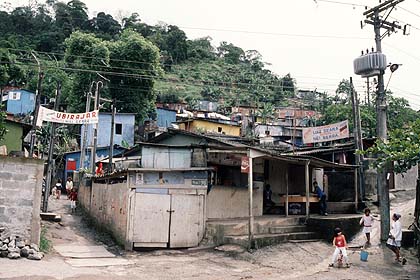Twenty-Fourth Sunday in Ordinary Time
Sr. Euphrasia Nyaki, MM
September 13, 2020
Sirach 27:30-28:7; Psalm 103: 1-2, 3-4, 9-10, 11-12; Romans 14: 7-9; Matthew 18: 21-35
Maryknoll Sister Efu Nyaki reflects on her work on trauma healing in Brazil in light of this week’s scriptures.
In this time of crisis, what with the COVID-19 pandemic and our reckoning with racial justice, it is indeed a time for deep reflection and transformation. In my work with trauma healing, I have been telling my colleagues as well as those who come for our healing process that it feels like there is a need for us to use this golden opportunity to change our old ways of being. We are facing collective traumas in which all of the human race is affected in one way or another. Taking up the invitation to healing ourselves will also have benefits for our collective healing.
In today’s first reading, we hear that “wrath and anger are hateful things, yet the sinner hugs them tight.” In our world today we have been experiencing explosive anger, hateful acts, and many violent events that take away from human dignity. In my work with trauma healing, I learned that when a traumatic event happens and there is no chance for the individual to heal, this individual will carry in themselves the traumatic energy, which in turn will affect others. This will contribute to collective trauma.
For example, here in the northeast of Brazil where I live and work, I have witnessed how acts of violence, such as murder, can have ripple effects across generations and can also be repeated from generation to generation. This process happens also with alcoholism, addiction, and certain diseases and illnesses. I imagine that what is happening in the United States with racial discrimination and violence has to do with deep wounds of generational trauma that have not been healed at the individual level or as a society.
Today’s responsorial psalm reminds me of the process of individual healing, which is then mirrored by society: “The Lord is kind and merciful, slow to anger, and rich in compassion.”
God is indeed merciful and rich in compassion. Since we are made in the image of God, we are also capable of being merciful, and we are also rich in compassion. However, when a person has been traumatized, the trauma leaves a highly activated energy in the body that creates a constant post-traumatic stress. A traumatized person is wrapped in the energy of “fight, flight and freeze” that he or she acquired in the process of trauma. The traumatic energy that is trapped in the body will provoke constant anger, fear, shame, guilt and sadness.
Also, a traumatized person might feel so much pain that it manifests in other physical symptoms. It is for this reason that a traumatized individual can create a vicious cycle of trauma in their family, community, and society. And so, those who have suffered trauma need a kind and merciful presence for their healing, and in turn their healing will also become a source of healing for the entire society. “The Lord is kind and merciful, slow to anger, and rich in compassion.”
In the gospel reading for today, Peter approaches Jesus and askes him, “Lord, if my brother sins against me, how often must I forgive? As many as seven times?” Jesus answered, “I say to you, not seven times but seventy-seven times…”
In my work of healing generational traumas, I have learned a lot about forgiveness.
Once I was counselling a couple who were in the process of a painful divorce. They came to me to ask for the last chance of therapy before separating. They told me that they did not want to separate, but their constant quarrels were exhausting.
While I was working with them, I asked the wife if there was anything she felt, moved to tell her husband at that moment. She then looked at him and said; “I forgive you.” I asked her to feel the phrase that she just said in what in therapy is called her “felt” sense. After a minute of silence she said that right after she uttered out the words, she felt pain in her chest. Therefore, I invited her to say the following phrase: “I feel a lot for all that happened between us. I am very sorry, and therefore I take 50 percent of the responsibility for the conflicts.” When she was able to say these two phrases, the pain in her chest disappeared and she had a smile on her face. At this point, her husband also felt a relief and a sense of joy. Then I asked him to say the same thing to her. Afterward, they both of looked at each other with tears in their eyes. They also thanked each other for being there in their life’s most difficult moments. This process happened 3 years ago, and this couple is still happily married.
The above example illustrates the need for us to humbly take responsibility for our share of the harm in any given conflict. Forgiveness often requires honest self-reflection. It also is often a long process, full of numerous steps and repeated acts of forgiveness and humility. Oftentimes, if we take responsibility for our part in the harm, and forgive ourselves for our failures, then true healing can take place. When we are able to forgive ourselves, then it is easier to let go of other people’s behavior. And in our humanity, we will need forgiveness over and over, from God, our neighbor, and ourselves.
Jesus’s exhortation to forgive 77 times is symbolic for infinity; we are called to forgive ourselves and others an infinite number of times, because that is the number of times we are forgiven by God.

